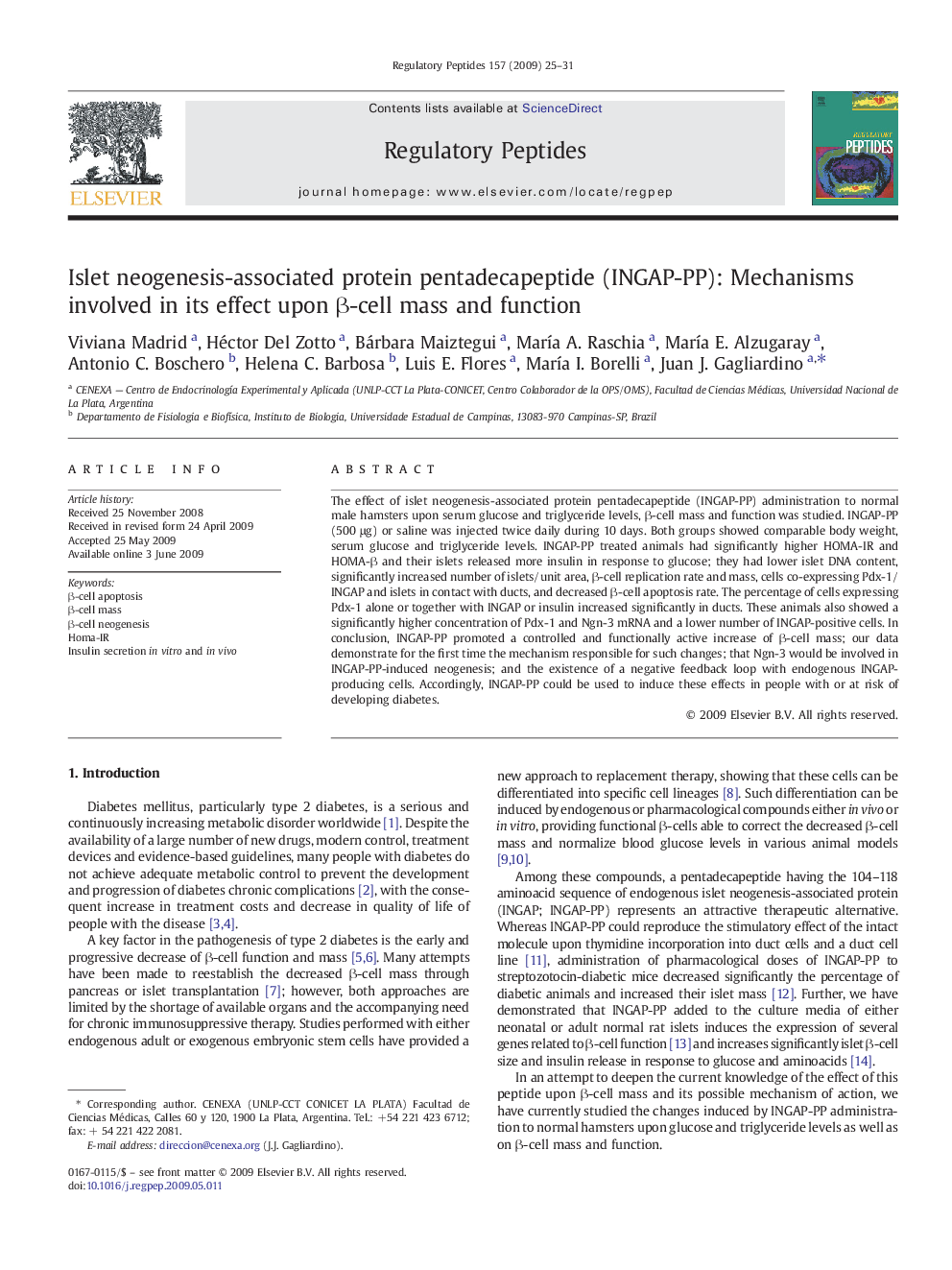| Article ID | Journal | Published Year | Pages | File Type |
|---|---|---|---|---|
| 2023047 | Regulatory Peptides | 2009 | 7 Pages |
The effect of islet neogenesis-associated protein pentadecapeptide (INGAP-PP) administration to normal male hamsters upon serum glucose and triglyceride levels, β-cell mass and function was studied. INGAP-PP (500 μg) or saline was injected twice daily during 10 days. Both groups showed comparable body weight, serum glucose and triglyceride levels. INGAP-PP treated animals had significantly higher HOMA-IR and HOMA-β and their islets released more insulin in response to glucose; they had lower islet DNA content, significantly increased number of islets/unit area, β-cell replication rate and mass, cells co-expressing Pdx-1/INGAP and islets in contact with ducts, and decreased β-cell apoptosis rate. The percentage of cells expressing Pdx-1 alone or together with INGAP or insulin increased significantly in ducts. These animals also showed a significantly higher concentration of Pdx-1 and Ngn-3 mRNA and a lower number of INGAP-positive cells. In conclusion, INGAP-PP promoted a controlled and functionally active increase of β-cell mass; our data demonstrate for the first time the mechanism responsible for such changes; that Ngn-3 would be involved in INGAP-PP-induced neogenesis; and the existence of a negative feedback loop with endogenous INGAP-producing cells. Accordingly, INGAP-PP could be used to induce these effects in people with or at risk of developing diabetes.
